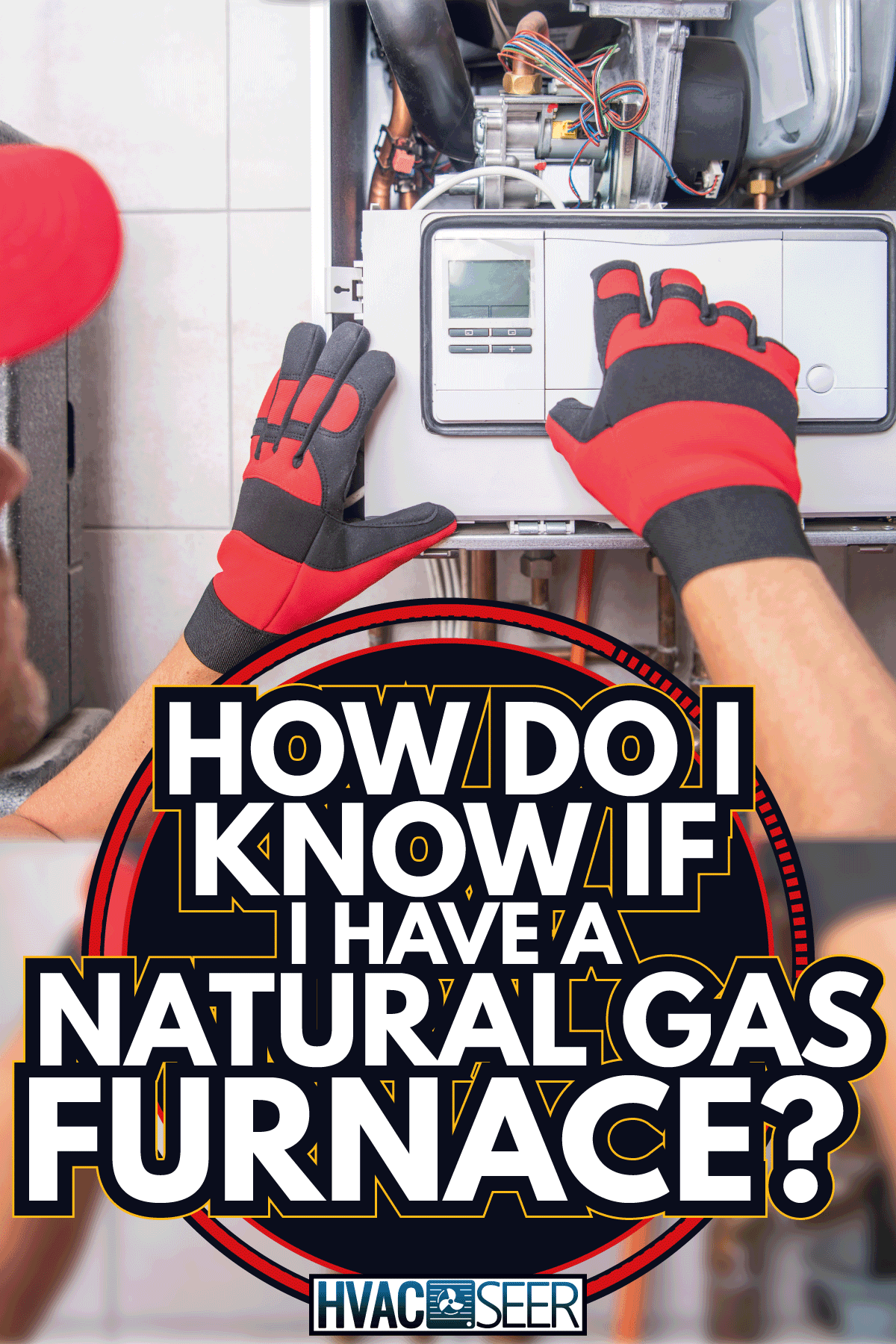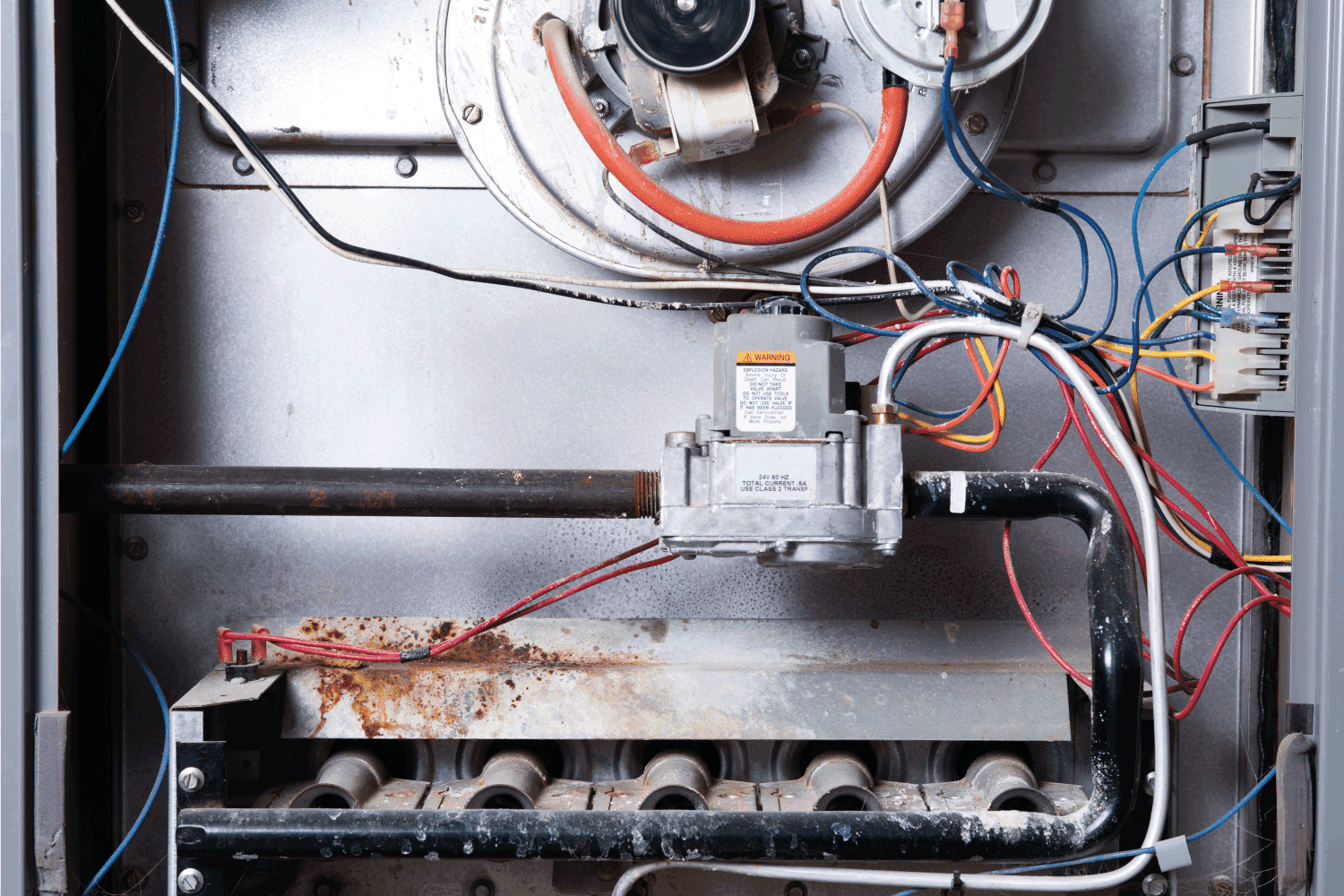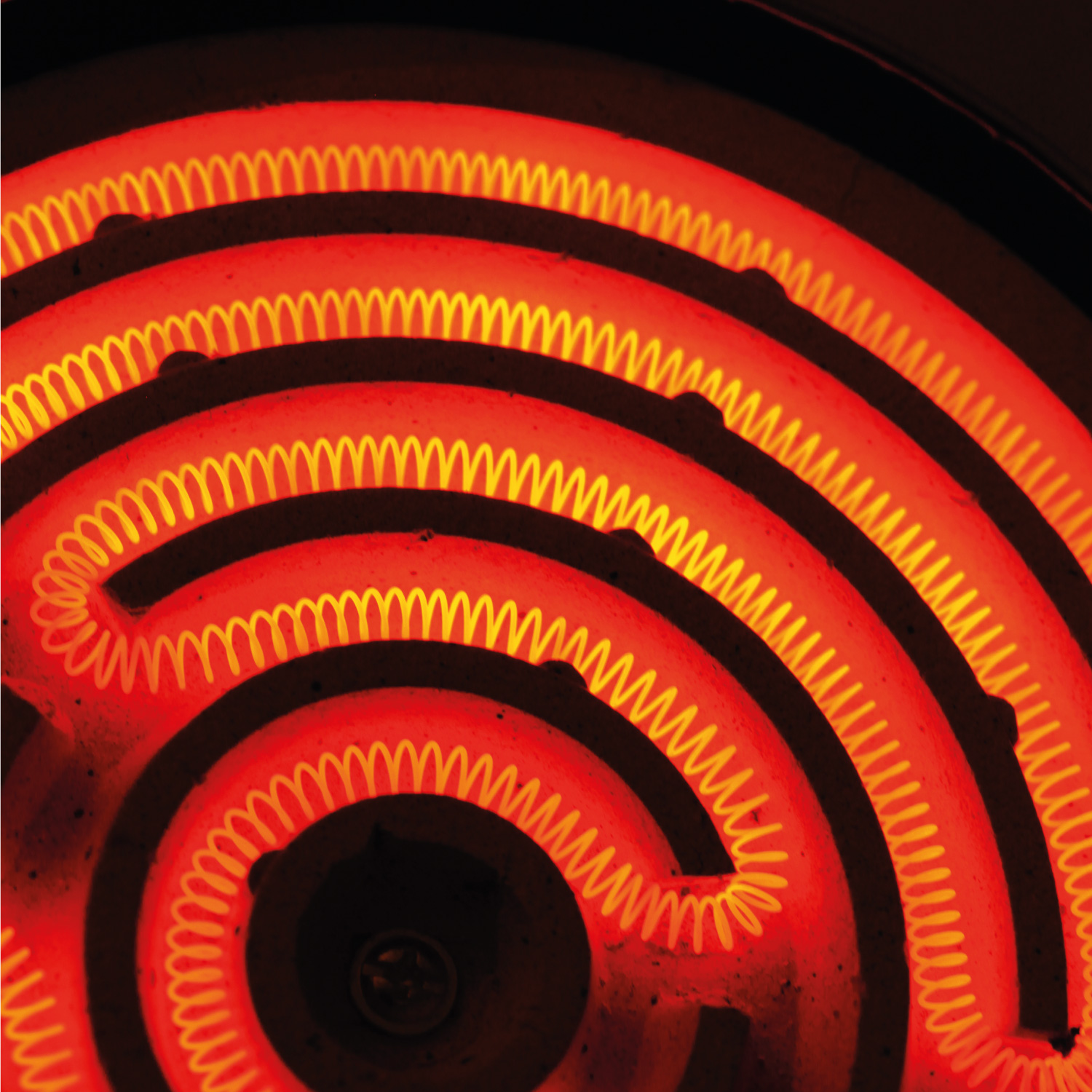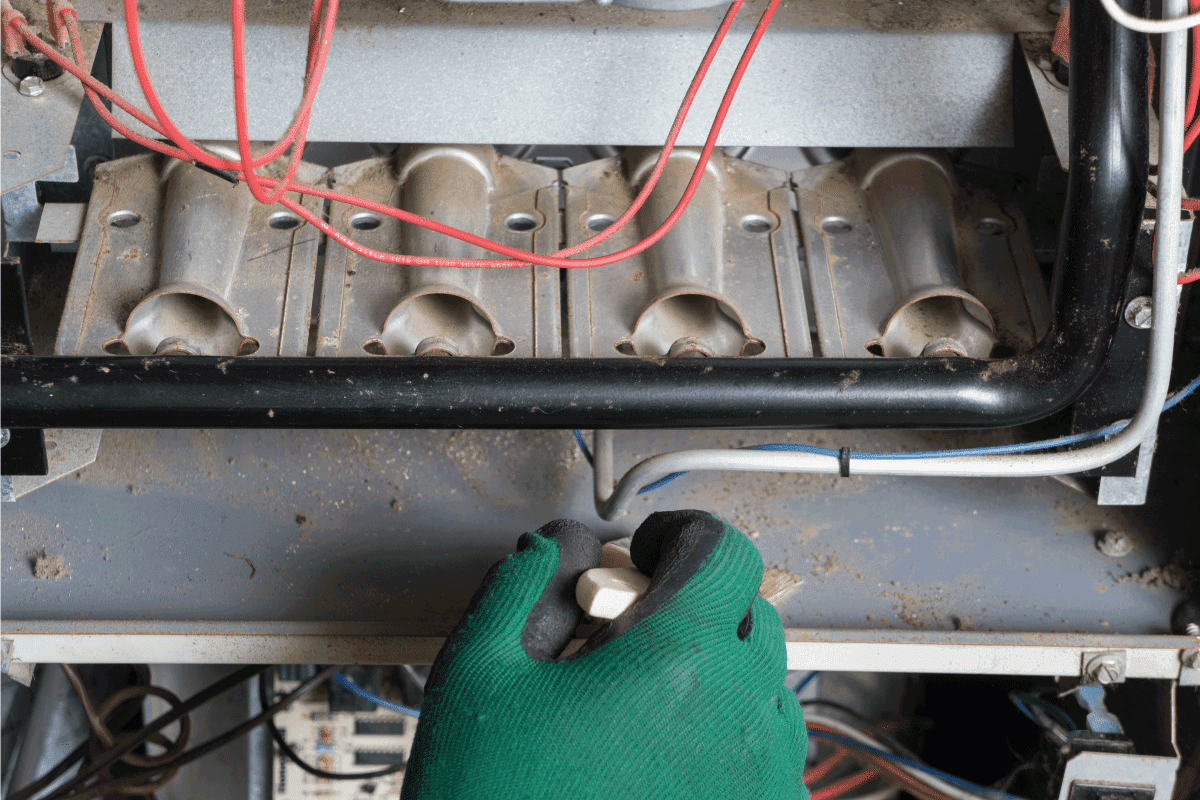The most common options for home heating systems are electric and gas furnaces. However, if you have recently moved into a new home, you may be unsure which type of furnace you have. To assist you, we've researched a few steps that can help you figure it out.
Here are steps that you can use to determine if you have a natural gas or electric heating system:
- Turn on the thermostat
- Locate the heat system source
- Look inside the unit's front panel
- Locate the make and model number
Both types of systems can work efficiently to warm your home during the winter months. However, it's best to know which type you have in the event that you need to repair or replace the unit. Continue reading to learn how to differentiate the two systems.

Steps To Determine Your Furnace Type
1. Turn on the thermostat
Turn the thermostat up so that the unit powers on. You should be able to hear the air moving through the vent ducts.
2. Locate the heat system source
Next, go to the area of your home that houses the heat system source; this will typically be the attic, basement, or utility closet. You may also want to consider where the water heater is located, as the furnace will usually be nearby.
3. Look inside the unit's front panel
Once you locate the appliance, take a look at the front panel. You should be able to see the heat exchanger. If not, remove the panel using a screwdriver.
If you see a blue flame glowing on top of a bed of coils within the furnace, you have a natural gas-operated furnace. If you have an electric system, you will not see any panel (or glass window) with a flame inside, and you'll hear very little noise coming from the unit.
4. Locate the make and model number
If you are still unsure what type of furnace system you have, take down the make and model number of the system and look it up online. You should be able to find the manufacturer and the details about the heating system.

Gas Heater Vs. Electric Heater
A gas-operated furnace uses combustion to create a flame and heat your home. Within this type of heating system, the air is pulled in from outdoors, heated in the furnace's heat exchanger, and distributed via your vent ducts.
An electric-operated system works just as well, except it uses electricity instead of gas and combustible heat. It pulls in air from the outside like a gas furnace and then uses electricity to heat the air within the heat exchanger. Once the air is heated, it is and then distributed through the vent ducts.

Are electric or gas furnaces more efficient?
Neither is necessarily more efficient than the other. All-electric furnaces have an AFEU (Annual Fuel Utilization Efficiency Rating) of 100% because they don't need fuel to operate. An electric furnace will naturally save you more on your gas bill than a gas furnace. And just because a furnace has a higher efficiency rating doesn't necessarily mean it will cost less to run.
It really depends on the energy used (gas or electric). Gas furnaces will always result in higher gas bills than electric furnaces, and electric furnaces will always result in higher electric bills than gas furnaces. However, electricity is more expensive to run than gas.
If you are wondering which is better for your home in terms of efficiency, gas may be the cheapest option. HVAC professionals typically recommend choosing a gas-operated heating system, especially if you already have a natural gas connection to your home. However, it can always be helpful to have a technician actually come to your home to perform a consultation recommend the best option.
How long does a gas furnace last?
A gas furnace can last up to 20 years, but you'll likely find that most last anywhere from 10 to 15 years.
How safe is natural gas heating?
Natural gas heating is a safe home heating option. However, it does come with certain hazards that should be taken into consideration.
The most common one is carbon monoxide. This odorless, clear, and deadly gas can leak through your ventilation system, contaminating your indoor air quality and causing serious and fatal health conditions.
This is why HVAC technicians recommend periodically cleaning and checking your air ducts, vent pipes, and having the heating system serviced once or twice a year.
Do gas furnaces need to be serviced?
Yes. It's recommended that you have your gas furnace serviced at least once a year, ideally twice a year. The maintenance tune-up can prolong the life of your unit and keep it running at optimal efficiency.
However, sometimes your gas furnace will display signs that a repair or service is needed before the tune-up. Let's take a look at the most common signs:
- Your energy cost and usage over the past two or three winters has steadily gone up by more than 15% each year
- You find that you constantly have to reset the temperature on your thermostat-- or the thermostat keeps cycling on and off
- You notice a pungent odor coming from your furnace area or through the vents
- There is an accumulation of soot around the furnace or coming through the vent ducts
- You begin hearing loud banging, rattling, or screeching sounds coming from the furnace during its operation
What is included in a furnace tune up?
A furnace tune-up works in the same way as an automobile tune-up. The main purpose of the tune-up is to inspect the inner components of the furnace, prevent future issues, and clean out the system to prevent airflow blockages. Here are some of the main services included in your typical furnace tune-up:
Blower cleaning
The HVAC technician will clean out the blower compartment and remove any dirt and debris from around the fan and motor. They may also clean off the thermocouple if it is dusty or dirty.
Inspect and adjust electrical wires
The technician will check any connection and tighten any electrical wires in the furnace to prevent malfunctions and future repairs.
Burner cleaning
The burner on your gas furnace can become saddled with soot and debris. During the tune-up, the technician will adjust and clean the burner to maximize the furnace's efficiency.
The technician will also clean the heat exchanger to remove any soot or dirt from around the coils and panel. In addition to this, they will inspect and test the heat exchanger to ensure that the flame operation and gas supply valves are working properly.
Replace air filter
The HVAC technician will also replace or clean the furnace's air filter. Doing this will help keep the condenser working at proper operating capacity and prevent airflow restriction.
Additional system efficiency and safety checks
He or she will also perform safety checks, including testing for carbon monoxide, leaks, faulty components, energy usage, and humidity issues.
Make recommendations
Lastly, the technician can give you input on the overall condition of your furnace and alert you to any pending issues. They can also advise on whether or not the furnace may need to be replaced.
What happens if you fail to get your furnace a tune-up?
Neglecting your annual tune-up increases the likelihood that your furnace may break down at some point, especially if it's over ten or more years old. And unfortunately, the most common time for the furnace to break down is in the winter when you need it the most. This is because you may not notice any problematic issues while the furnace sits dormant during the spring and summer months.
It's also worth noting that small problems can become much bigger problems, and they may be more expensive. An annual tune-up will often prevent little issues from accumulating to more expensive repairs. This is especially true when it comes to component failure.
For example, if there is an issue with restricted airflow in your unit, it's best to have this mitigated as soon as possible to prevent the furnace's blower motor and condenser from overworking. These particular parts can be fairly expensive to replace.
Lastly, neglecting your furnace's annual tune-up can put your home's indoor air quality at risk. For example, if the heat exchanger becomes cracked, carbon monoxide can quickly leak into your home's vent system, creating a very dangerous indoor environment for you and your family.

Wrapping Things Up
We hope this post has helped you gather an understanding of how to differentiate a gas furnace from an electric furnace. Remember, if you are unsure whether or not you have any gas or electric operating system, you can always write down the make and model of the unit and reach out to the manufacturer to confirm.
Be sure to check out some of our other posts before you go:
